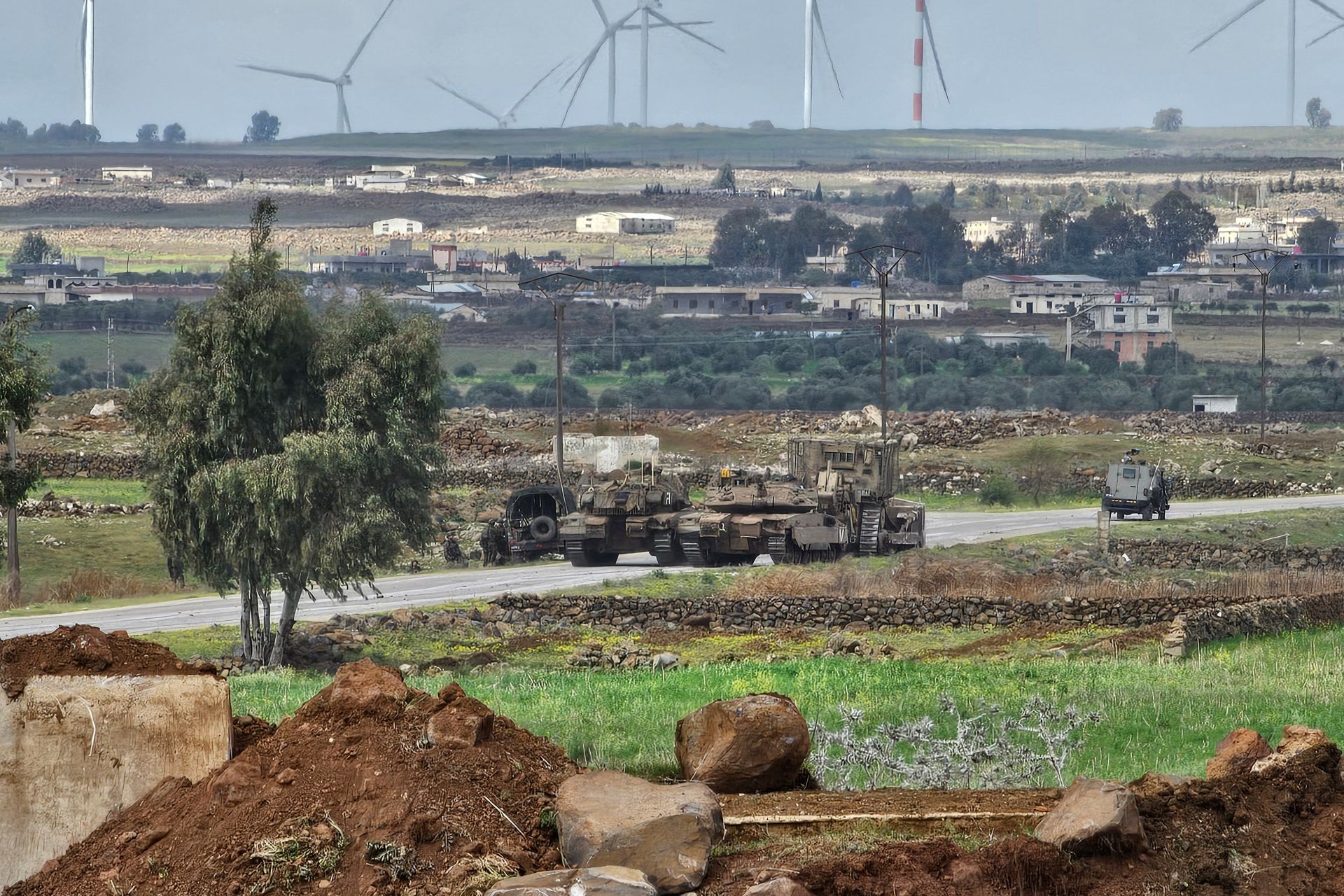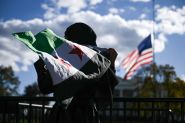- Home
- Middle East
- Syria: UN Envoy Denounces Israeli Strikes and Calls for De-escalation

Israeli army tanks and a bulldozer drive through the Abu Diab military post on March 19, 2025, on the southern outskirts of the Syrian border town of Quneitra. ©Bakr ALKASEM / AFP
United Nations special envoy Geir Pedersen on Saturday urged Israel to immediately stop its attacks on Syria, after strikes including one near Damascus's presidential palace, which followed sectarian violence this week.
Fresh overnight strikes were reported, coming as Israel has repeatedly said its forces were ready to protect the Druze minority, following sectarian clashes that a war monitor said killed 119 people, mostly Druze fighters.
Since ousting longtime ruler Bashar al-Assad in December, Syria's new authorities -- who have roots in Al-Qaeda -- have vowed inclusive rule in the multi-confessional, multi-ethnic country, but they must also contend with internal pressures from radical Islamists.
"I strongly condemn Israel's continued and escalating violations of Syria's sovereignty, including multiple air strikes in Damascus and other cities," Pedersen said in a post on X, calling "for these attacks to cease at once".
The Syrian Observatory for Human Rights said more than 20 strikes hit military targets across Syria late Friday, in the "heaviest" assault carried out by Israel on its neighbour this year.
Syria's state news agency SANA reported strikes near Damascus and in the country's centre, west and south, saying one civilian was killed.
An Israeli military statement said its forces "struck a military site, anti-aircraft cannons and surface-to-air missile infrastructure in Syria", but gave no further details.
The barrage followed an Israeli attack near the presidential palace in Damascus early on Friday, which Israeli Prime Minister Benjamin Netanyahu and Defence Minister Israel Katz called a "clear message" to Syria's new rulers.
"We will not allow forces to be sent south of Damascus or any threat to the Druze community," which is also spread across Israel and Lebanon, they said.
'Deployed in southern Syria'
On Saturday, the Israeli military said it was "deployed in southern Syria and is prepared to prevent the entry of hostile forces into the area of Druze villages".
It did not specify whether this was a new deployment or provide troop numbers.
A Druze official in Sweida province in the south, the heartland of Syria's Druze community, said there had been "no deployment of Israeli soldiers there".
This week, Druze clerics and armed factions reaffirmed their loyalty to Damascus, following clashes between Druze fighters and Syrian forces, including government-affiliated groups, near Damascus and in Sweida.
The unrest was sparked by the circulation of an audio recording attributed to a Druze citizen and deemed blasphemous. AFP was unable to confirm its authenticity.
The Observatory and Druze residents said forces affiliated with the new authorities attacked Jaramana and Sahnaya near Damascus and clashed with Druze gunmen, while Syria's government blamed "outlaw groups" for the violence.
A de-escalation deal prompted government troop deployments in Sahnaya and tighter security around Jaramana.
Also Saturday, Israel's military said "five Syrian Druze citizens were evacuated to receive medical treatment in Israel overnight" after sustaining injuries on Syrian territory.
The Druze official in Sweida said they were wounded "in clashes in Sahnaya" and feared being detained if sent to hospital in Damascus.
AFP
Read more



Comments